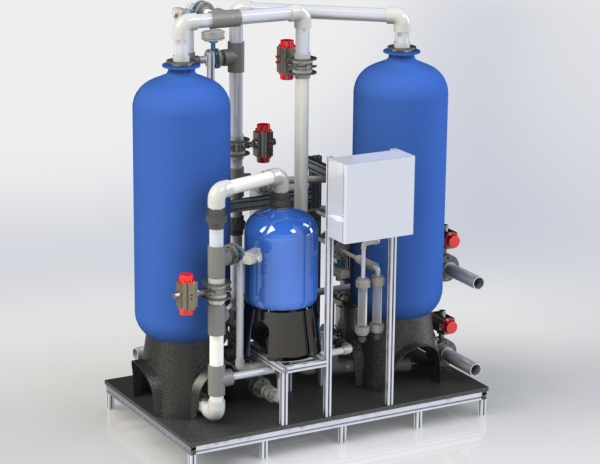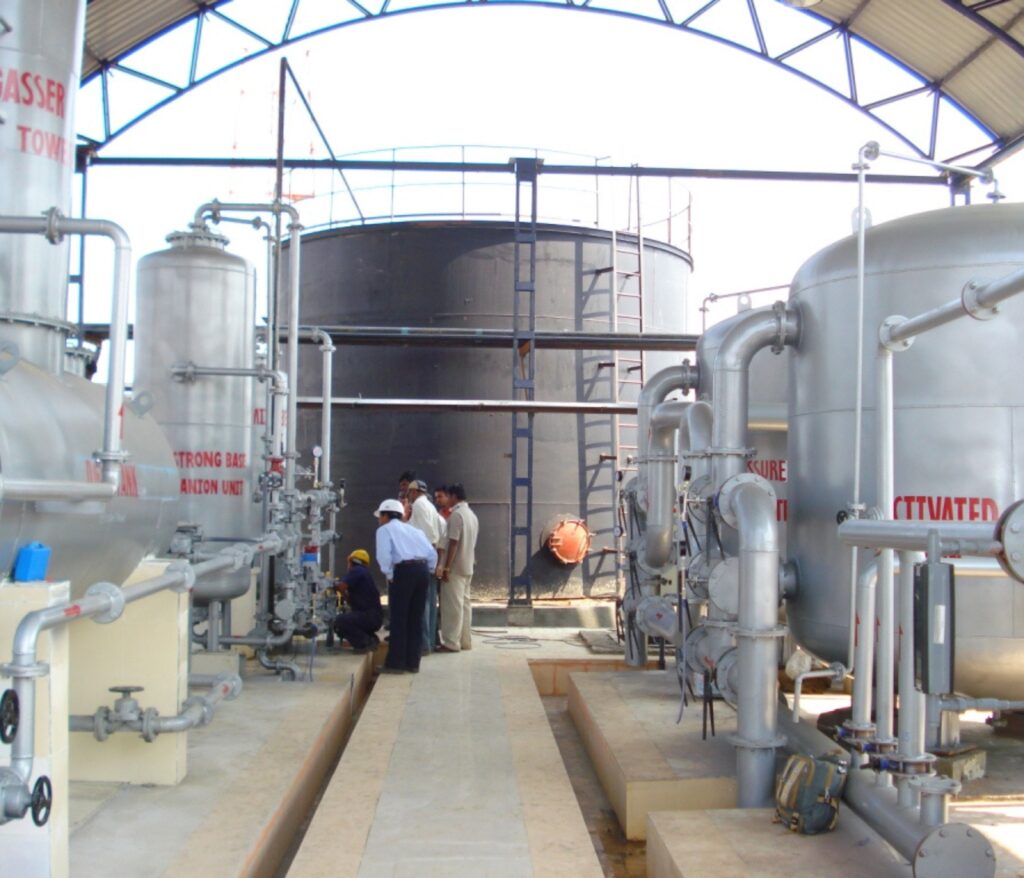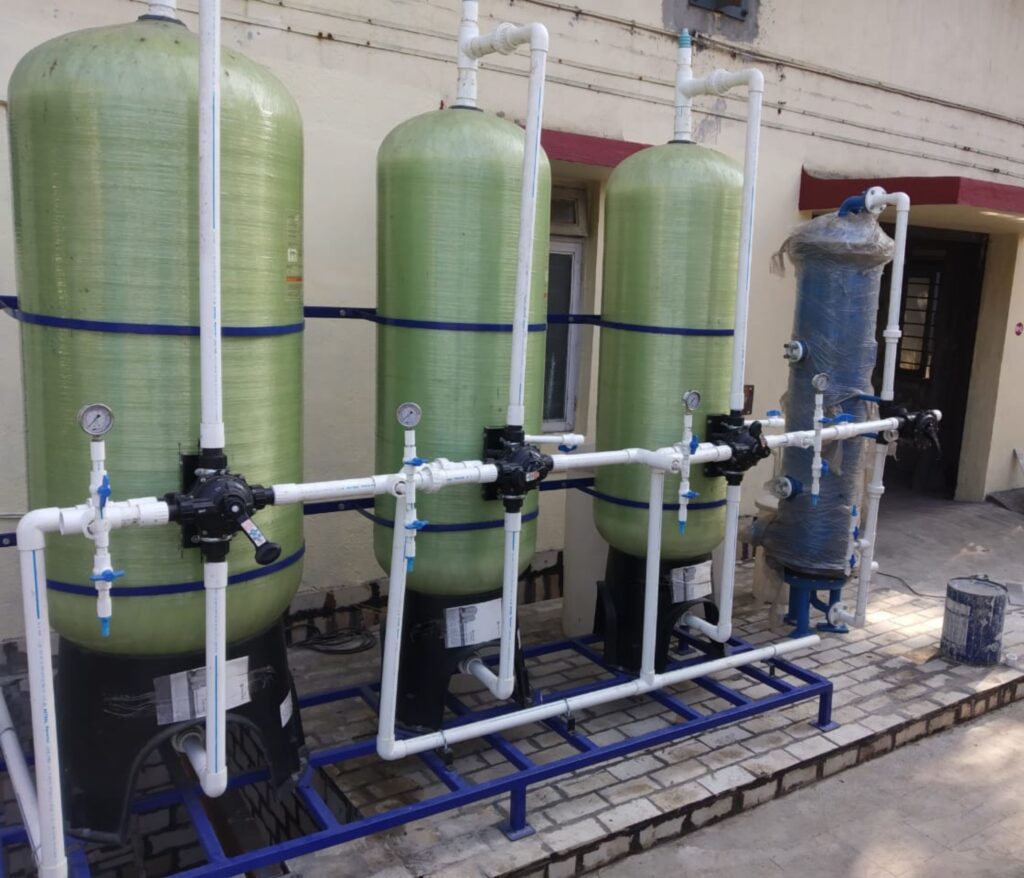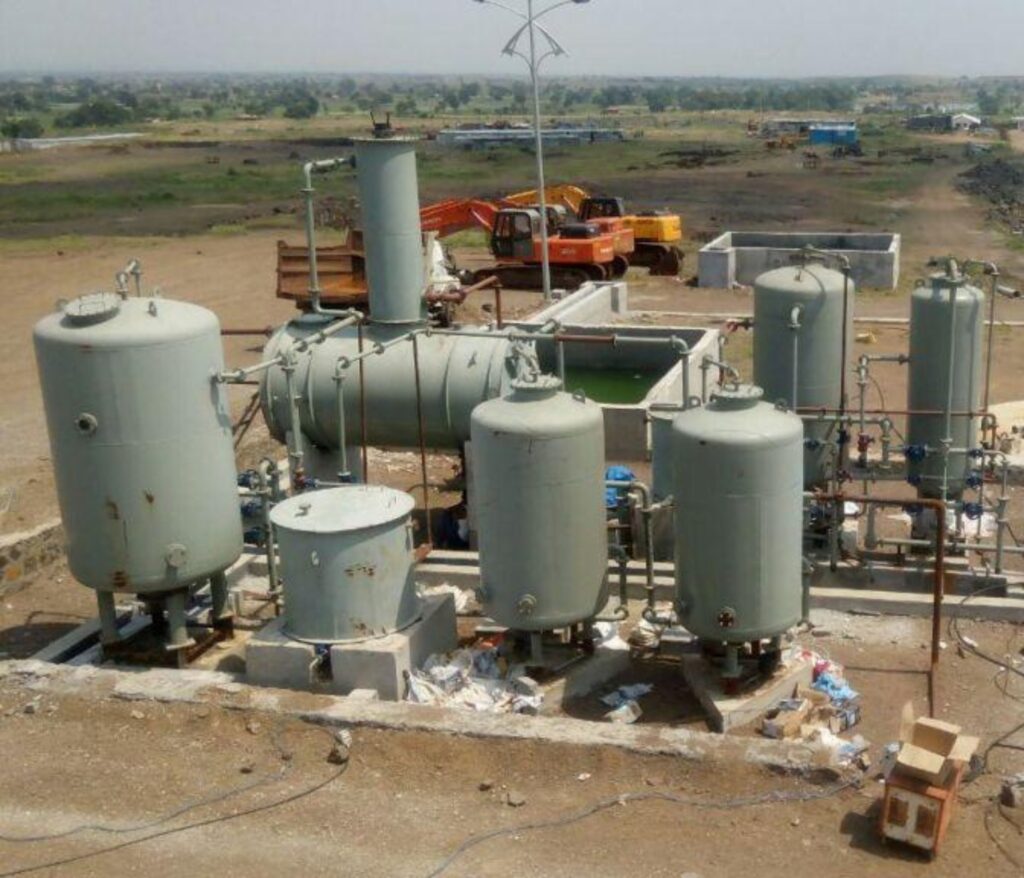Introduction to demineralization
Demineralization, also known as deionization, is a water treatment process designed to remove dissolved mineral salts and impurities from water, resulting in high-purity water suitable for various industrial, commercial, and laboratory applications. This method is crucial in industries where even trace amounts of impurities can disrupt processes, damage equipment, or affect product quality

The Water Demineralization Plant offered by Pure Water Expert is designed to be highly efficient, reliable, and effective. It ensures user-friendly operation and operates with low power consumption, delivering cost-effective performance with a conductivity of up to 15 micro siemens/cm.
Product Description
The DM Plant from Pure Water Expert consists of a strong acid cation unit, a strong base anion unit, and a mixed bed unit. Naturally occurring water contains various salts in a dilute form, commonly referred to as dissolved solids. To remove these minerals, the water is treated in an ion exchange resin column (H-form), where positively charged ions are adsorbed. The cation-free water then passes through an anion resin column (OH-form), which adsorbs negatively charged anions. The result is water that is completely free from total ions, delivered efficiently by the system.
Functionality
Ion exchange is a fast and reversible process in which impurity ions in water are replaced by ions released from an ion-exchange resin. The resin absorbs the impurity ions and requires periodic regeneration to restore it to its original ionic form. An ion is an atom or group of atoms carrying an electric charge—positively charged ions, known as cations, are typically metals, while negatively charged ions, called anions, are usually non-metals. Since most water impurities are dissolved salts, the deionization process effectively produces high-purity water (deionized water) similar to distilled water. This process is efficient, quick, and prevents scale buildup.
Feature
- User-friendly
- Easy operation
- Low power consumption
- Low maintenance
- Durable, economical, high shelf life
- High flexibility, and high reliability in operation
Advantages
- Boiler feed water in boilers from low pressure to supercritical pressure
- Industries such as Textiles, Pharmaceuticals, Chemicals, Breweries, Hospitals, swimming pools, Automobiles, Batteries, and Fertilizers.
- Ion Exchange Plants
PLANTS WE OFFER



Frequently Asked Question
A demineralization plant is a water treatment system designed to remove dissolved minerals, salts, and ions from water, producing high-purity water. It uses ion exchange technology, where positively charged ions (cations) and negatively charged ions (anions) are replaced with hydrogen (H⁺) and hydroxide (OH⁻) ions, respectively. This process effectively eliminates impurities such as calcium, magnesium, chloride, and sulfates, making the water suitable for industrial applications, laboratories, and other processes requiring mineral-free water.
A demineralization plant removes dissolved salts and minerals from water using ion exchange technology. Water passes through a cation exchange resin, where positive ions (like calcium and magnesium) are replaced with hydrogen ions, and then through an anion exchange resin, where negative ions (like chloride and sulfate) are replaced with hydroxide ions. The resulting hydrogen and hydroxide combine to form pure water, with optional mixed bed polishing for ultra-purity. The resins are periodically regenerated with acid and alkaline solutions to maintain efficiency.
Demineralized water offers high purity by removing dissolved salts and minerals, making it ideal for industries like power generation, pharmaceuticals, and electronics. It prevents scale buildup, reduces corrosion in machinery, and improves equipment efficiency and lifespan. Additionally, its use minimizes the need for harsh cleaning chemicals, promoting eco-friendly and cost-effective operations.
The main disadvantage of a demineralization plant is the cost of operation. The ion exchange resin beads have to be regularly replaced, which can be costly. Additionally, the process consumes a large amount of energy, which can make it expensive to run. Also, it creates brine waste water which need to be treated before disposing.
Demineralized water is widely used in various industries due to its high purity. Common applications include:
- Power Plants: Used as boiler feed water to prevent scaling and corrosion.
- Pharmaceuticals: For manufacturing medicines and cleaning equipment.
- Electronics: In semiconductor and circuit board production.
- Laboratories: For experiments requiring pure, ion-free water.
- Automotive: In batteries and cooling systems.
- Chemical Processing: As a solvent or for diluting chemicals.
- Food and Beverage: For rinsing and ingredient preparation.
